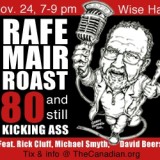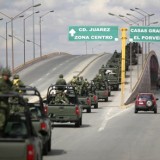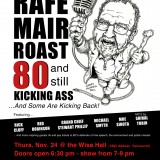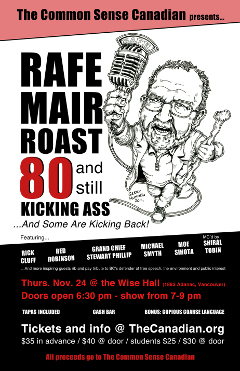Ciudad Juarez, a city on Mexico’s border with the US state of Texas, is described by Ed Vulliamy as “the most murderous city in the world” (Guardian Weekly , July 1/11). The 40,000 homicides claimed so far by Mexico’s recent drug war didn’t all occur in Ciudad Juarez. But enough were committed there to make the city a focus of attention and a symbol of socio-economic failure, a glimpse into a future in which the quest for profit is pursued to its logical extreme. Put simply, a demand for drugs exists in America and Europe, a supply is available, and competing entrepreneurs are eager to meet need of the market place.
The drug cartels don’t dirty themselves with messy killing. Like a corporation that hires an advertising or public relations agency to promote a product or project, they hire gangs to do their work. Shootings, beheadings, mutilations and torture are increasing in frequency and brutality. The killers proudly post their atrocities on YouTube, linking their identity to their own gruesome method of killing. In the marketplace of illegal drugs and murder, they brand themselves with their particular form of violence. Morality is irrelevant. The system is fed by market share, profit and pride of service. In Vulliamy’s language, it is “capitalism gone mad”.
The residents of Ciudad Juarez have adapted to the war occurring among them. Malls are open for shopping. Restaurants serve meals throughout the day. In the cool evenings, people gather to eat, drink and socialize. The only difference, Vulliamy reports, is that the eery “semblance of normality” is “punctuated by gunfire”. The bloodshed, torture and violence has become so normal that ordinary people barely notice it.
But other people have noticed Ciudad Juarez. Like a flash of light in the dark, it illuminates and reveals. The co-existence of chaos and order in this Mexican city can be related to an event at a New York Wal-Mart in November, 2008, when a security guard, unable to climb to safety on nearby vending machines, was trampled to death by a mob of 2,000 “frenzied shoppers” who pushed in the doors and stampeded to the bargain specials (Ibid. July 8/11).
And events in Ciudad Juarez can also be related to brutal international trade and monetary forces that are undermining the autonomy of individual nations, thereby rendering democracies less and less able to determine their own policies and futures. In another Guardian Weekly article, Democracy is No Match for Market Power, Gary Younge asks, “How can we render democratic engagement viable at the national level within the context of globalization?” (Ibid.). If market forces predetermine economic and social policy, why bother to vote – which is Younge’s explanation for declining voting rates in most modern democracies.
In another event that echoes the morality of the drug war in Ciudad Juarez, Younge describes a law passed unanimously by the Haitian parliament in June, 2009, which raised the daily minimum wage to $5.00 per day. The US corporate interests that make high-end brand apparel in Haiti protested the increased wages. According to a WikiLeaks document, a senior US embassy official argued that the law “did not take economic reality into account” (Ibid.). Political pressure and intensive lobbying forced a special concession on Haiti’s garment industry – the minimum wage would be $3.00 per day.
A related force in the capitalist free-market economy, Vulliamy argues, is fuelling the slaughter in Ciudad Juarez. “Recruits for the drug war come from the vast, sprawling maquiladora…”. These “bonded assembly plants” that once payed “rock bottom wages” to fill America’s supermarkets are now being closed because labour is cheaper in Asia. In a “city that follows religiously the philosophy of a free market” (Ibid., July 7/11), the unemployed are being hired by the drug cartels to secure territory and market share. “It’s a city based on markets and on trash,” notes a local photographer. “Killing and drug addiction are activities in the economy, and the economy is based on what happens when you treat people like trash” (Ibid.).
What happens to people and to societies when everything they do is measured by economic value? What happens to morals and ethics when the market transposes key social structures into materialism and consumerism? What then happens to the bounds that keep societies civil? If people are treated like “trash” by free-market capitalism, do they eventually adopt these same values and abandon the civilizing bounds of decency and humanity? And to those who want to protest this degenerating process, Vulliamy poignantly as, “How can you march against the market?”
Vulliamy argues that Mexico’s drug war is different than other wars because it is simply the struggle for market share gone amok. “It belongs to the world of belligerent hyper-materialism, in which the only ideology left… is greed.” The Mexican drug cartels are merely the logical extension of a free-market economy. They have been living the “North American free-trade agreement long before it was dreamed up”, merely practicing what multinational corporations practice – albeit with somewhat less restraint and subtlety.
But not necessarily. The compounding environmental crisis presently facing our planet is another outcome of this same “belligerent hyper-materialism”, a system that is eminently successful at making profit while inflicting murderous ecological ruin in the process. Like the people of Ciudad Juarez, we too have become accustomed to an eery “semblance of normality” that is “punctuated by gunfire”. We shop and eat and socialize amid environmental mayhem, making the best of a situation that seems beyond our ability to change – hoping, all the while, that the stray bullets don’t hit us.
Post Script: The present “Occupy Wall Street” movement that has spread to cities around the world is an attempt to “march against the market” and correct some of the political, economic and social problems created by abject greed.





